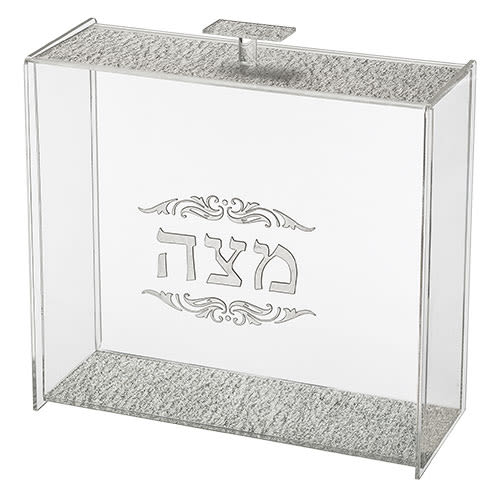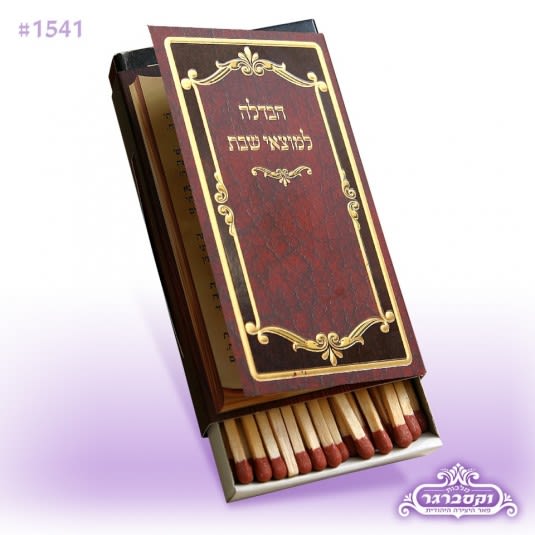
Toldot: The Great Hijack
Why did Isaac want to the bestow the blessings upon Esau? Didn't he understand the spiritual superiority of Jacob? Jacob's actions are also questionable...

One of the most suspenseful and perplexing stories in the Torah is Jacob's "hijacking" of the blessings. Isaac felt that his life's end is nearing and sensed the urgency of blessing his son Esau. He called upon Esau to bring him some venison which would put him into the correct mindset to impart the appropriate blessings. Rebecca, Isaac's wife, overheard her husband's plan and called for Jacob to go in his brother's Esau stead. Although Jacob initially demurred, ultimately he reluctantly agreed to impersonate his brother and take the blessings instead. Jacob was successful and received the blessing only moments before Esau's return. Isaac realized the switch that was made and ultimately agreed to his "mistake" and willingly conferred his blessings on Jacob. The rest of the story including Esau's fury at Jacob's actions is not the issue that I wanted to focus on.
There are a number of difficulties with the entire episode. Why did Isaac want to the bestow the blessings upon Esau? Didn't he understand the spiritual superiority of Jacob? Assuming Isaac felt this was the best course of action, why was Rebecca so adamant upon Jacob taking the blessings? Surely she was a very righteous individual. This hardly seems the way of the reverent. Jacob's actions are also questionable. Wasn't Jacob concerned about what seemed to be deceit? Initially Jacob refused to follow his mother's command but ultimately agreed. What convinced him to change his course of action? Finally, the benefit of Jacob receiving  the blessings seems to have been pointless. it would appear that he never benefited to be the true recipients of the blessings. As a case in point, from the destruction of the Second Temple until today it seems evident that Esau's offspring were, in general, much more prosperous than Jacob's. So where was the fulfillment of Isaac's blessings to Jacob?
the blessings seems to have been pointless. it would appear that he never benefited to be the true recipients of the blessings. As a case in point, from the destruction of the Second Temple until today it seems evident that Esau's offspring were, in general, much more prosperous than Jacob's. So where was the fulfillment of Isaac's blessings to Jacob?
The world is comprised of the physical and the spiritual. Certain people are more adept at using and developing the physical aspects of this world while others are more suited to focus on the spiritual. Isaac understood the nature of his two sons. He felt that Esau was more suited for utilizing and, ideally, uplifting the physical world while Jacob had a natural propensity to things spiritual.
If one examines the weekly reading, it's clear that there were two different blessings given. The first, physical prosperity, was intended for Esau while the second, spiritual in nature, was saved for Jacob. The first blessing reads as follows: "May Hashem give you from the dew of the heavens and the fatness of the earth, with abundant grain and wine. Nations will serve you and will prostrate themselves to you, etc." Clearly, the focus is on physical predominance.
As Jacob prepared to flee from his brother and to return to Abraham's birthplace to find a wife, Isaac blessed him with the words: "May Hashem bless you, make you fruitful, etc. May He grant you the blessing of Abraham, to you and your offspring, and may you possess the land of your travels that Hashem gave to Abraham." In short, Jacob would be the continuity of the Jewish people.
The first blessing was intended for Esau, the second for Jacob. Isaac felt that Esau would properly use the physical, subjugating himself to his more spiritual brother Jacob. Rebecca realized that based on Esau's life's history of misuse of his worldly gifts, his receiving dominion over the physical world would be catastrophic. However her understanding ran much deeper.
The great Beit HaLevi (Rabbi Yosef Dov Soloveitchik 1820-92) quotes and explains the Sages who find a profound lesson in Rebecca's words and intentions. Isaac requested special food from Esau and when Rebecca heard this plan she told Jacob to bring her "two good (tovim) young goats" to be prepared. On the words "good" the Sages teach us "good for you and your children. Good for you that you will be able to take the blessings and good for your children that they will achieve atonement on Yom Kippur. This will happen through the two goats offered, one to Hashem and one thrown over a cliff to Azazel (the forces of evil).
It would appear that our Sages have connected two completely unrelated topics, the blessings and the Temple service on Yom Kippur. How do these two relate?
The struggle to receive the blessings reflected the question of who was the rightful recipient of Hashem's bounty. If Esau had received the blessings of the physical world, it would have been a two-fold tragedy. First, he would have misused the world for his own selfish, non-G-dly purposes and second, whatever Jacob's descendants would possess would rightfully belong to Esau's offspring. The Jewish people would be at the whim of the tyrants of Esau's progeny with no recourse to claim back something which had never been bestowed upon them.
However, by Jacob and his descendants receiving the blessings for physical welfare they gained in two ways. First, when the physical would be used to enhance the spiritual, their wealth would be well deserved. They would truly be deserving of Isaac's blessings. Houses of worship, Torah scrolls, and all necessary implements for filling the Torah would reflect properly earned prosperity. On the other hand, during those times that we do not use the physical for a higher spiritual purpose this will cause that Esau descendants, through thievery, trickery, or any other means, to take our property and possessions. But since this property is rightfully ours by the agreement of our forefather Isaac, Esau and his children will be benefitting us and helping us achieve atonement through the loss of property and, in more extreme situations, through the hardship of poverty.
This double benefit was being hinted to by Rebecca. The two goats brought on Yom Kippur represent these two aspects in the service of the Jewish people to Hashem. The goat offered to Hashem symbolizes those times when we properly use our wealth to get close to Hashem while the second goat represents all the property that goes into the hands of Esau. When Esau's offspring get rich from Jewish labor, that loss will also be a source of atonement.
Jacob understood the depth of his mother's command. He knew this was the necessary course of action and that his descendants would benefit doubly as mentioned before. So far from being a thief, he "saved" the physical world from Esau "stealing" it away from Hashem by using it for entirely selfish purposes.
This insight of the Beit HaLevi provides a much needed depth to a story that otherwise sounds so problematic. Isaac, Rebecca, and Jacob were all playing out a profound drama with many layers of meaning. May we merit to see the depths of the seemingly simple stories of the Torah and imbibe its timeless lessons.
* * *
Rabbi Dovid Charlop is on the teaching staff of the Neve Tzion Yeshiva in Telzstone, Israel. You can see more of Rabbi Charlop's articles here.











